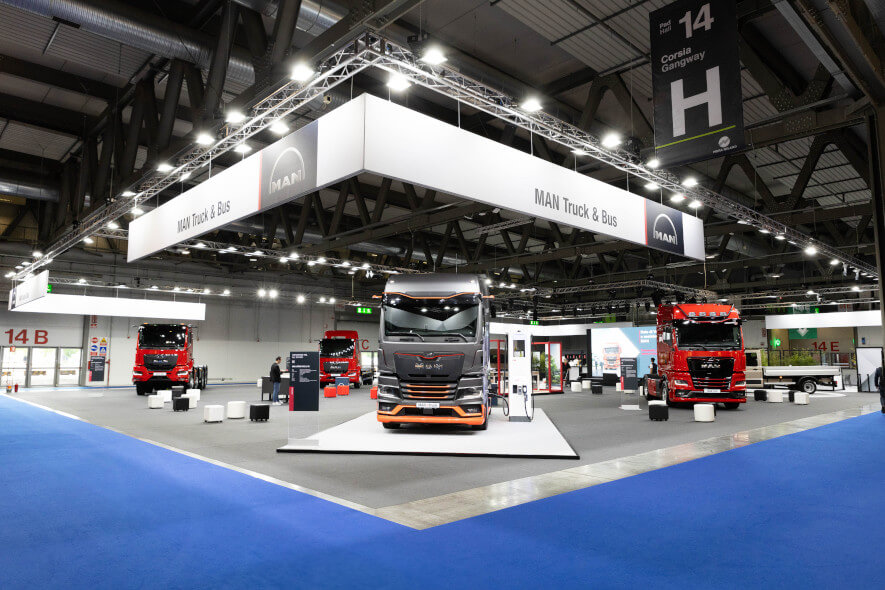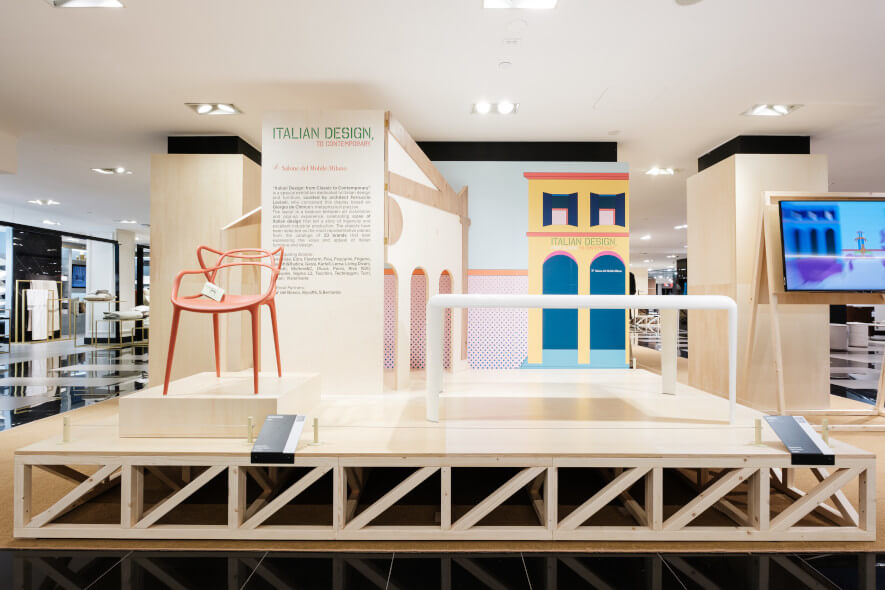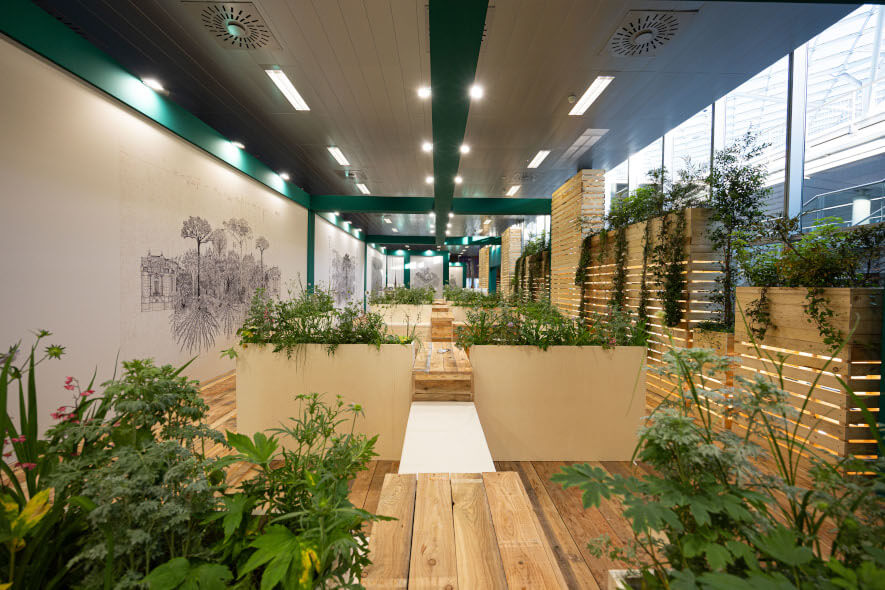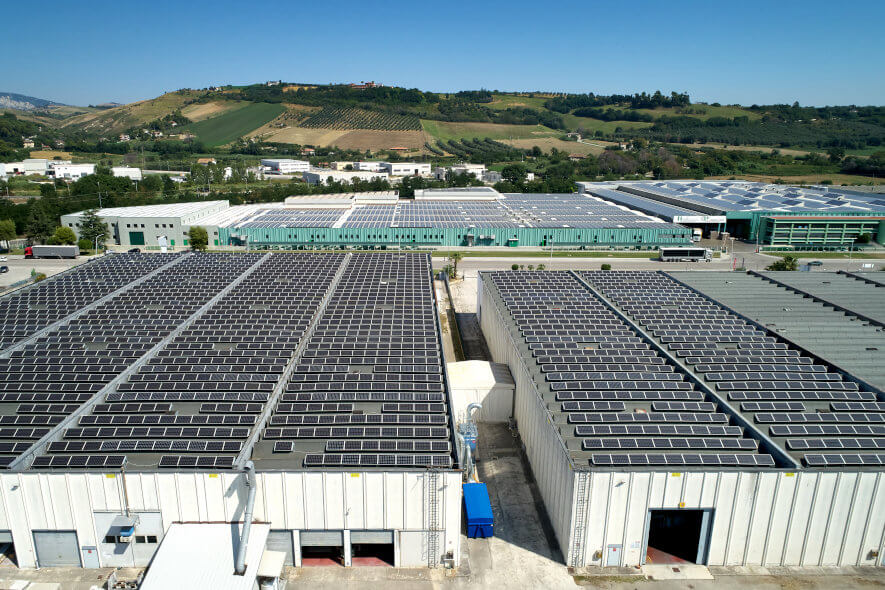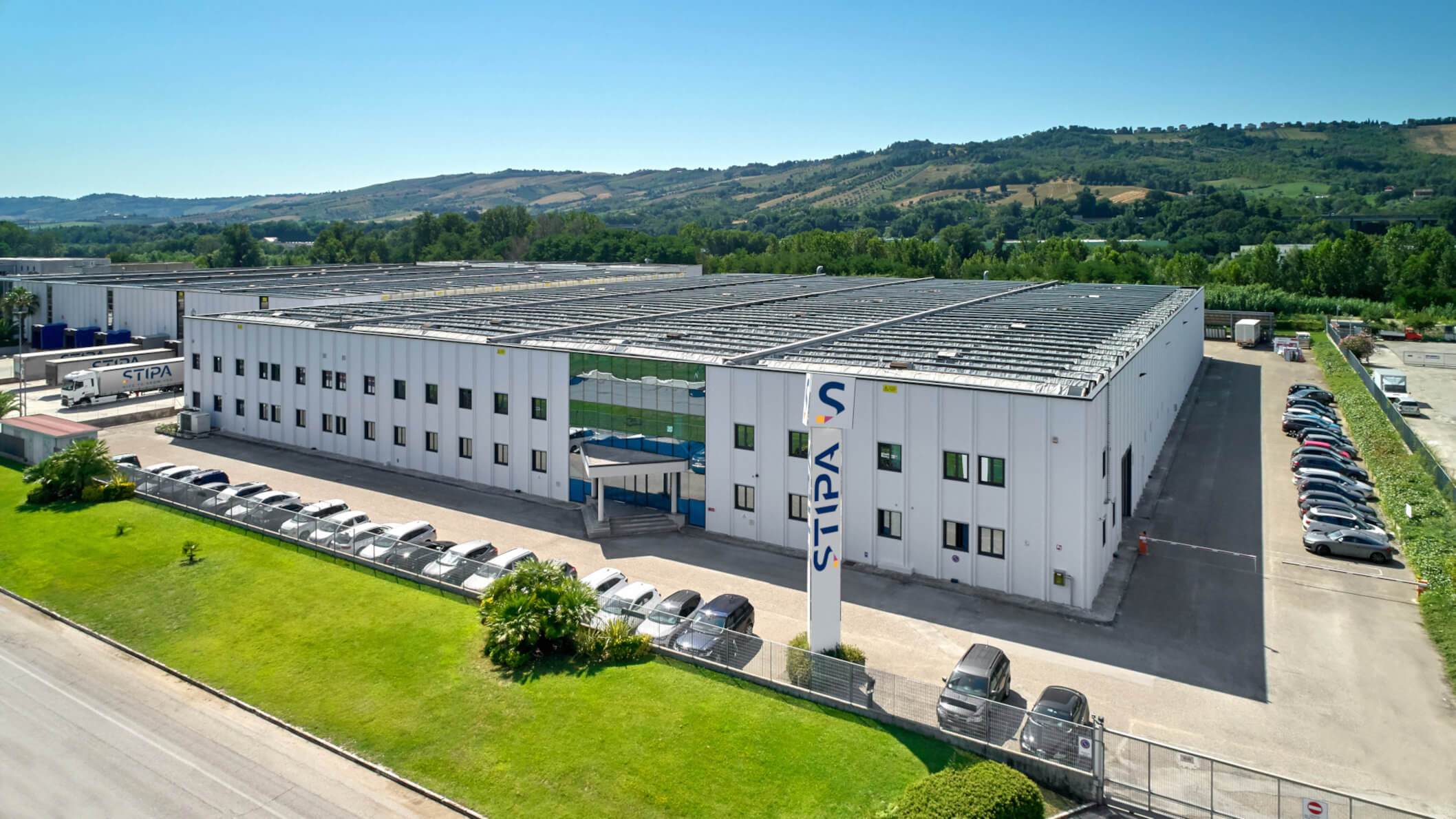

Sustainability policy
Thanks to an ambitious and constant path, the company has implemented concrete eco-design and process solutions to reduce environmental impact, demonstrating that style and sustainability can co-exist harmoniously.
Among the first exhibit design companies to obtain ISO 20121 certification for sustainable event management, Stipa has been committed for over a decade to promoting a circular approach , based on reuse, recycling, energy efficiency and waste reduction .
The main key points of the sustainability policy are:
Eco-design based on modularity
A concept based on modularity allows the reconfiguration of the exhibition space for different events, allowing the reuse of the same structures without sacrificing design.
The pilot project of the Martini Gelato stand, a Unigrà brand, respected all the criteria established by Bureau Veritas to obtain the ISO 20121 certification , from the selection of materials to the use of low-energy impact light sources. The concept was proposed at multiple fairs including Sigep with a space of over 1200 m2 .
Minimize environmental impact
Design choices and a careful selection of materials allow for the recovery and/or recycling of over 90% of the set-up.
MAN Truck & BUS Italia and Stipa have worked together in synergy to ensure participation in Transpotec Logitec and Next Mobility Exhibition had the smallest ecological footprint .
In addition, to further offset CO2 emissions, 200 new trees have been planted in the Stipa Forests .
Circular economy and durability
The use of natural and noble materials such as wood can give life to spectacular installations that, once decommissioned, can become the material for new installations until they are correctly recycled.
This is the case of "Italian Design: from Classic to Contemporary" organized by the Salone del Mobile in the famous Bloomingdale's department store in Manhattan - NYC.
Stipa engineered the project by Archistar Ferruccio Laviani, creating an experiential pop-up scenography where the wooden structures and wings are the absolute protagonists.
Recovery of otherwise unusable materials
The Vaia Forest catastrophe, the storm that destroyed 16 million trees in the North East, is an example of a tragedy that has become a second chance: resources that were once considered lost have instead gained new life.
It is precisely from this source of precious wood that various installations were born, such as the Federlegno International Business Lounge, a regenerating oasis in the dynamic world of the Salone del Mobile .It is precisely from this source of precious wood that various installations were born, such as the Federlegno International Business Lounge, a regenerating oasis in the dynamic world of the Salone del Mobile.
Carbon neutrality commitment
Aware that the road to total sustainability is a future yet to be written, Stipa has been collaborating with Treedom for years to give its support in achieving this ambitious result.
By planting thousands of trees across every continent, Stipa Forests helps cultivate hope, promote a healthier planet , and create a lasting legacy for future generations.
Local impact of the factories
Stipa truly believes that companies have a fundamental role in protecting our planet. For this reason, the production sites have been designed with respect for the environment and local communities.
From the photovoltaic systems that have powered the factories since 2010, to the reduction of waste and the constant commitment to energy efficiency , every action is guided by the desire to leave a better world for future generations.
All initiatives:
Sustainable and transparent supply chain management: Stipa is constantly committed to finding ethical suppliers who share the same values and adopt responsible practices.
Staff training: Success is the result of the work of a team of passionate and competent people. Through continuous training programs, we promote a corporate culture oriented towards innovation, sustainability and mutual respect.
Health and safety of workers: the health and safety of employees and collaborators are an absolute priority. Stipa is certified ISO 45001:2018 and guarantees a safe and healthy working environment, promoting good practices and adopting all necessary measures to prevent accidents and occupational diseases.
Innovation and digitalization: innovation is in Stipa's DNA. Constant investments in cutting-edge technologies optimize production processes, reduce environmental impact and improve the quality of services. Digitalization allows us to be increasingly efficient and responsive to market needs.
Ethics, compliance and anti-corruption: through a solid and transparent system of internal controls, Stipa ensures compliance with the best practices of corporate governance.
Charitable Actions: Stipa is aware of social responsibility and is committed to giving back to the community part of what it receives. Various initiatives promote sustainable development and improve the quality of life of the people in the area.
Stipa is proud of the results achieved and will continue to work for an increasingly sustainable future . Every action , even the smallest, can make a difference .

